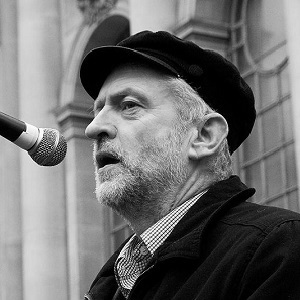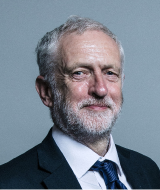Jeremy Corbyn: “Ours is a movement to give people hope”
Labour has many challenges to win in 2020. But the first challenge we must meet is for us as a party. We need to be united in our identity and our values - proud of what we stand for, and...
Labour has many challenges to win in 2020. But the first challenge we must meet is for us as a party. We need to be united in our identity and our values – proud of what we stand for, and confident and credible that we can deliver a better society.
To do that, we have to stop being a machine and start being a movement again. Our party was founded to stand up to injustice, but too often we have lost our way. We’ve listened to the counsel of the Westminster commentariat rather than our people and our communities, and been cowed by powerful commercial interests and the press.
Our best media is our movement: the people who organise in their workplace or who are active in their communities, they will deliver our message. If we listen to those people – value their wisdom and insight, rather than just seeing them as foot soldiers – we can produce a shared vision that can take the country with us.
The more we exclude our people, the weaker we are. I propose that we review our membership fees to become as inclusive as we can. We need to democratise our party, involve people in new and creative ways, and campaign with them for change at a local, national and global level.
We need to stop looking at the electorate through party labels, asking how can we win back Tory voters? How can we appeal to SNP voters? How can we outflank UKIP?
This is the politics of the machine, which sees elections as a game to win – and recreates the world in its image. It constructs the electorate as ‘Terraced Melting Pot’ or ‘New Homemakers’ or ‘Suburban Mindsets’. We reduce the electorate to faceless categories, and target them with specially tailored policies.
This is not how politics works. We are not trying to sell people on trying a new brand of washing powder. Instead, we must listen to our local trade unions, local parties, local councillors, constituency MPs and local members who know their communities. They know the people and the issues they face. We need strong networks in every location, built from the bottom up, not dictated to from above.
Top-down behaviour has to end. Labour has drifted into a presidential model of politics in which the leader and their office comes up with all the policies. I want to change that. In the past when Labour party conference voted for something the leadership didn’t like, senior MPs were wheeled out to tell the press that it would be ignored. That alienates our support and undermines our principles as a democratic socialist party.
We cannot simply make policy at party conference once a year. We need to review our policy-making process to ensure that it is inclusive, accessible, participatory and able to take democratic decisions quickly when necessary.
This will help to rebuild trust not only in our party, but also in the idea that government can empower people and transform society.
We also have to bust the myths that there is less money around and austerity is inevitable. Austerity is not an economic necessity, but a political choice. That is not just my assessment but that of some of the world’s leading economists, among them Nobel laureates. The idea that a crash caused by boardroom greed and cabinet neglect should be paid for by cuts to the services and benefits of all is not a Labour idea.
We must become an anti-austerity movement, but we must do more than that. Together we must build a vision for a modern prosperous and sustainable economy that works for all, not just a few.
At the last election, 34 per cent of people who were registered to vote didn’t vote. They are more likely to be younger, from an ethnic minority background and to be working class – as are the hundreds of thousands who are not registered to vote at all.
These are the people who would benefit most from the sort of Labour government I know we all believe in: that stands up against discrimination; that reduces inequality and poverty; that campaigns with people for a fairer society for all.
If we had convinced just one in five of those who didn’t vote then we would today have a Labour government. And I know too that we can win back the trust and support of many of those who left us in 2015 for the Conservatives, UKIP, the Greens or SNP.
Ours is a movement to give people hope – the hope of a better world, with less injustice and more equality, peace and solidarity. Together we need to agree policies that will achieve those goals and then campaign for them, winning more people over with our principles and giving them hope that things can be better. If we do that, the election will then be ours for the taking.
This is a version of Jeremy Corbyn’s Leading Labour Fabian essay, originally published in August. You can read the full version, and the other candidates’ essays, here.

